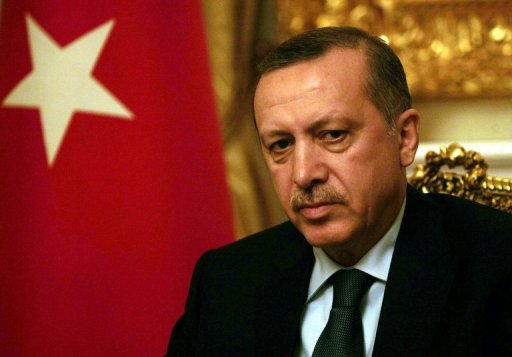
From Morton Abramowitz, the National Interest: [Turkey’s Prime Minister Recep Tayyip] Erdogan has transformed Turkey in a way that no other leader has since Ataturk. The country is more dynamic, democratic and freer than it has ever been. Turkey’s vast economic growth has enabled it to again become a significant international player. He has particularly re-engaged with the Middle East and elevated Turkey as a model for the area. His activism and his anti-Israel stance are immensely popular domestically and in most Middle East countries. By all accounts Mr. Obama sees Erodgan as a constructive partner, speaks with him frequently by phone and seeks his views on the region.
Given all this, deciphering Erdogan’s worldview is increasingly important. Many in and outside of Turkey are concerned about how much his dedication to Islam drives his actions in the Middle East. A penchant for emotional, personalistic rhetoric has sometimes clouded the “principles” of liberty and democracy that Erdogan says guide him. Some, less charitably, say he drones on ad hoc on all sorts of issues, often conveniently forgetting his previous stances. His selective application of principles on both international and domestic issues has left many asking: Who is the real Erdogan? Here we seek to probe that question.
Erdogan, who grew up in Turkey’s Islamic political parties, was shaped by his personal and political roots in Islam. He sees the world as controlled by the non-Muslim West, which continually and systematically mistreats Muslim countries. He sees Israel dominating its Muslim neighbors while receiving special treatment from the West. Meanwhile, Muslim countries such as Sudan and Iran are sanctioned and isolated for the same behavior. Principal actors in this unjust system are the UN and the Security Council because they enable Israel to maintain military and nuclear superiority over its Muslim neighbors. As the leader of a democratic and economically successful Muslim state, Erdogan sees himself as the voice of an oppressed Muslim constituency that includes the peoples of the Middle East, most importantly the Palestinians, and increasingly the Muslims of Africa. Erdogan frequently identifies justice as his guiding principle, with Islam often the primary factor in his evaluation of justice and victimization. . . .
Turkey has supported the U.S. war in Afghanistan and broader U.S. efforts against terrorism. However, Erdogan’s rubric for determining what constitutes terrorism or war crimes is heavily influenced by his view of Islam. If a leader is Muslim, then he “cannot commit genocide” because Islam forbids murder; such was Erdogan’s defense of Sudan’s President Omar al-Bashir for his massive destruction of Darfur, many of whose people were not Muslims. Likewise, if an Islamic group like Hamas is fighting Israel, that group can be called “freedom fighters.” However, the Kurdistan Workers’ Party (PKK), whose members come from Muslim Kurdish families, should be labeled terrorists (as they are by most Western countries) and cannot be Islamic because they are also killing civilians and fighting the democratic Turkish state. This he distinguishes from organizations like al-Qaeda and the Taliban that claim to be Islamic but commit acts of terrorism. With the notable exceptions of Bashir and Hamas, Erdogan’s rubric has not put him in direct conflict with the U.S. policy on terrorism.
Erdogan’s focal point is where Islam, democracy and secularism intersect—as, for example, in Tunisia, Egypt and Libya, where efforts are being made to form new governments. As a messenger for Islam’s compatibility with democratic values, Erdogan sought to fill a gap in discussions over the Middle East’s future. In Cairo, he made the case for secular government, how a religious man can lead a secular democracy and not sacrifice his religiosity or the secular nature of the state. Erdogan is putting his brand of Islam and democracy front and center. . . .
[H]e is a man of strong—even visceral—feelings who clearly believes he has a mission, and the strong support of his people has put the wind at his back. He wants to shake things up internationally, meaning the West’s domination of the global system, and particularly the Middle East, can no longer be at the expense of Muslims. He sees Israel as a culprit, and his dispute with Israel goes far beyond last year’s Israeli attack on a Turkish ship seeking to break Israel’s blockade of Gaza. This perspective puts him at odds with central principles of U.S. policy, focused on Israel’s security as a primary concern. Erdogan’s pragmatism and seasoning as a third-term prime minister should not be discounted. As Turkey’s participation in NATO action against Libya and its agreement to host a NATO radar shield suggest, Erdogan is more in tune with geostrategic concerns and the balancing of interests than some here may choose to believe. He clearly wants, and thinks he can have, a strong relationship with the United States, even in the Middle East. The Obama administration has given him no reason to doubt that. His fierce ambition, his solipsism and his religious worldview, however, blend into a combustible mixture that makes him an unpredictable ally.
Abramowitz, a senior fellow at The Century Foundation, was American ambassador to Turkey 1989-91. (photo: AFP)
Image: ap%2010%2019%2011%20Prime%20Minister%20Recep%20Tayyip%20Erdogan.jpg
